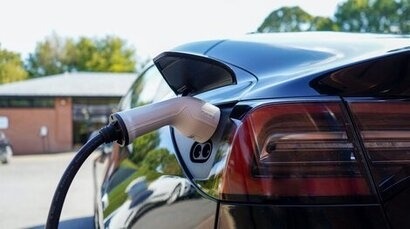
The report concludes that renewable energy usage in the transport sector is still too slow, having grown at a rate of just 4.7 per cent annually from 2010 to 2020.
“The energy transition is happening, but it's not happening fast enough” said Jad Baba from REN21. “We're moving in the right direction, but not at the right pace. So far, renewable energy shares have not exceeded 20 percent in any of the energy-consuming sectors, and they are the lowest in transport.”
Decarbonising transport is especially significant since it is the fastest-growing energy-consuming sector, with a 2 per cent yearly growth rate and a renewable energy share of only 4 per cent. The sector is responsible for nearly one-third of the world's total energy consumption and accounts for 7 per cent of the global GDP and 5.6 per cent of the global workforce.
“We saw a huge increase in investment in electric vehicles and charging infrastructure; it was up by 54 per cent in 2021” added Mr Baba. “Energy consumption in transport also had the highest decrease during the COVID pandemic of all energy-consuming sectors, dropping by 13.4 per cent. However, it rebounded in 2021 by 7.8 per cent but was still 6.6 per cent below the pre-pandemic level. Overall electricity demand in the sector grew at an average rate of 3.6 percent per year between 2010 and 2020. Renewable electricity grew faster during the same period at a rate of 7 percent per year on average. This is a positive trend for renewable electricity, but renewable energy use in transport is still very low compared to all other energy-consuming sectors.”
The sector remains a significant contributor to greenhouse gas emissions with the transport industry responsible for emitting 7.7 gigatonnes (Gt) of carbon dioxide (CO2) in 2021, accounting for approximately 20 per cent of the global total. Although transport-related emissions increased by 7.8 per cent compared to 2020, they were still 7.2 percentage points lower than the pre-pandemic levels. Road transport, responsible for 76.6 per cent (5.9 Gt of CO2) of transport emissions in 2021, had the largest contribution, followed by marine transport (11 per cent) and aviation (9.2 per cent). The challenge of reducing fossil fuel subsidies remains a major hurdle in promoting the adoption of renewable energy sources and reducing emissions in the transportation sector.
“What is really blocking real energy transition in transport is fossil fuel subsidies” said Maruxa Cardama, Secretary General at SLOCAT. “It's impossible to transform road transport and increase the uptake of renewables with the prevailing subsidies that we see. It's impossible to see sustainable aviation fuels penetrate the market much more, while the EU or the US are actually reducing taxation on kerosene. We see great momentum around EVs and around the banning of internal combustion engine vehicles but that is not being coupled with specific targets that introduce renewable energy in the transport sector. We are not really putting the monies into public transport, and they remain essential modes for giving people access to jobs and to socio-economic opportunities, but also decarbonising people's daily lives in an effective manner. We still need to see financial institutions completely shifting the sustainability criteria they use. We need to put public money to leverage and de-risk private investment in the uptake of renewables in transport.”
Other voices have echoed the report’s conclusion. Philip Turner, Head of Sustainable Development at International Association of Public Transport's (UITP) said that the 0.4 per cent of renewable electricity in transport from renewables is “rubbish, it really is bad.”
“If we carry on at this pace, we're going to get absolutely nowhere” added Mr Turner. “We must remember what the IPCC is telling us: we need a 43 per cent drop in emissions by 2030 in the transport sector, and it's just going up. 2030 is 80 months away, we can't carry on like this.”
However, there are some things that bring hope. For instance, electric vehicles (EVs), including two and three-wheelers and buses, and their charging infrastructure are experiencing rapid growth, with a 54 per cent global year-on-year increase in investment, particularly in Asia.
“Electric vehicles are more economical than internal combustion engines because fuel prices for petrol and diesel can be unpredictable, and businesses want predictability” said Shyamasis Das from WRI India. “Climate change is also a factor driving EV adoption. This is one of the key drivers in the Indian market. The Indian government has signed up for EV30@30, which means by 2030, they want 30 per cent EV penetration in vehicle sales.”
An Avoid-Shift-Improve framework is necessary to facilitate the transition to sustainable transportation and infrastructure systems. It involves avoiding overall travel when possible, shifting to more efficient modes of transportation, and improving vehicle technologies. To achieve this, public policies and land management strategies can help reduce the need for motorised transport, especially in urban areas. Incentives and investments can also encourage people to use less energy-intensive modes such as cycling, walking, and rail.
For additional information:

